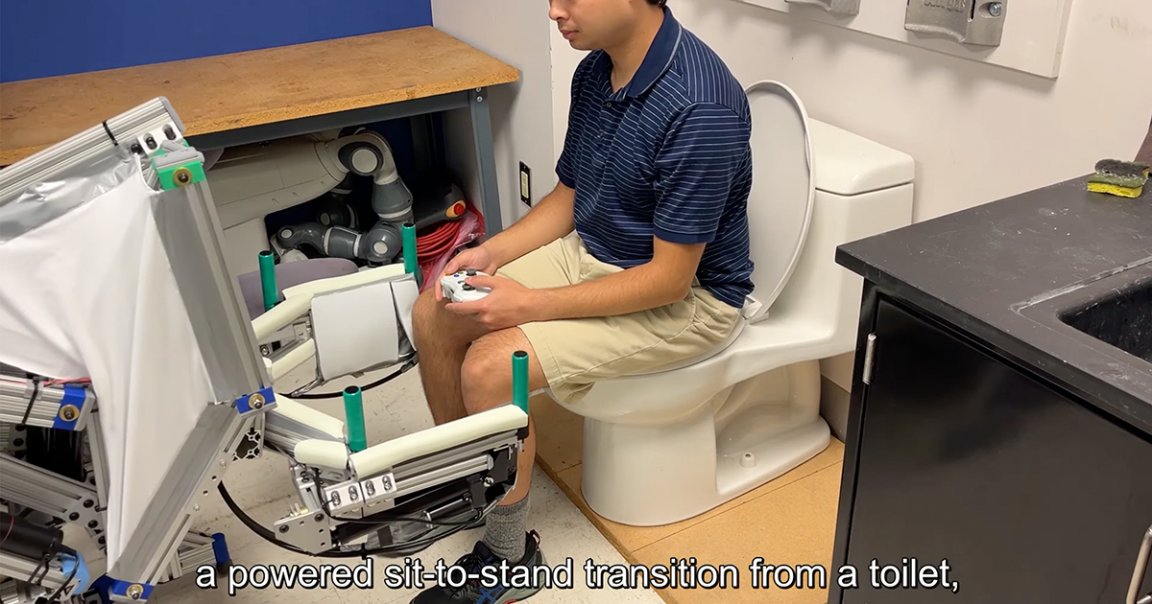
The United States is not a great place for old people, to put it lightly.
Though the elderly population is at its highest number in history, seniors face a myriad of unprecedented crises in the form of AI-powered insurance claims denial, unwalkable communities, and eldercare abuse.
That’s not to mention the prospect of growing old in a society where your well-being is directly tied to your wage — as that same society devises ever-more powerful AI models that can scam you out of your 401K at any time.
Luckily, a few crafty American engineers are using some good old techno-solutionism to aid the elderly.
A team of engineers at MIT recently unveiled what they’re calling the Elderly Bodily Assistance Robot, or E-BAR for short. The robo-buddy is designed as a physical support for old folks, and can hold a person’s weight, lift them from a seated position, and save them from a fall with “rapidly inflating side airbags,” according to MIT News.
The bot itself gets around on four omnidirectional wheels, which are controlled independently. This allows E-BAR to rotate in place and hold an elderly person without toppling over as it cradles them in its metallic arms.
A video uploaded by the engineers shows E-BAR assisting in six tasks typical of an elderly caregiver, including getting into and out of a bathtub, bending down to reach things on a low shelf, lifting patients from the toilet and the floor, as well as assisting a patient while walking.

According to the engineers, the goal was to design an assistant that could help old folks without being intrusive.
“Elderly people overwhelmingly do not like to wear harnesses or assistive devices,” Roberto Bolli, a graduate student engineer who worked on the project told MIT News.
“The idea behind the E-BAR structure is, it provides body weight support, active assistance with gait, and fall catching while also being completely unobstructed in the front. You can just get out anytime,” Bolli said.
Though largely meant to be a research project, certain design elements, such as the E-BAR’s door-friendly size and 18-bar linking arm, could be reproduced by commercial robotics manufacturers for actual home use.
If that happens, it’s difficult to imagine mass distribution of E-BARs under the current trajectory of senior care as a whole.
In the US, eldercare tech devices like stair lifts and large-button phones are not covered by Medicare, and rarely by private insurance, making them out of reach for many senior citizens. As of 2022, over 44 percent of elderly adults in the US reported having an unmet daily need related to self-care, mobility, or household activities.
Given the high cost of consumer robotics production, it’s hard to imagine robotics making them affordable enough to the average elderly person.
More on Robots: Musk Says Trump Preventing Him From Building Legion of Robots